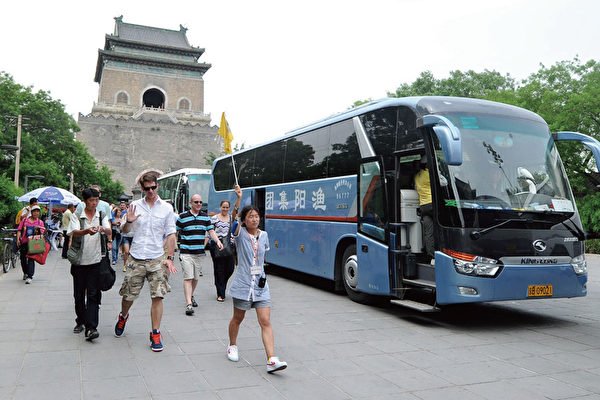As the white-collar jobs become increasingly unstable, more and more young people in China are obtaining tour guide qualifications. The number of candidates taking the exam this year has increased by 45% compared to the previous year.
According to the official industry publication “China Travel News”, in 2024, a total of 320,000 people registered to take the national tour guide qualification exam, an increase of 45% from 2023, reaching a historical high in all provinces across the country. It is reported that an increasing number of examinees hold high education qualifications such as university degrees and have majors in foreign languages.
In the midst of economic slowdown and job instability in China, being a tour guide has become a backup option for young people. Only 20% to 30% of candidates are able to pass the tour guide certification exam.
Subramania Bhatt, founder of the digital marketing and research company China Trading Desk, told Bloomberg, “While tour guiding has traditionally been seen as temporary or seasonal work, people’s perspectives have changed after the pandemic.” The company provides travel data analysis.
Becoming a tour guide has a low entry barrier as one only needs to pass the exam. They can earn money through activities such as leading sightseeing tours, and earning commissions from shopping.
According to mainland Chinese media “New Weekly”, Chinese tour guides typically earn between 350 to 500 yuan per day, while English-speaking guides earn an average of 600 to 1000 yuan per day, with guides proficient in languages like German or Italian potentially earning even more.
“For many confused young people in China, ‘getting certified’ is something they aspire to during their university years.”
However, in the past, obtaining a tour guide certification was just one of the skills local university students aimed to acquire. They would pursue qualifications ranging from education to accounting and translation to enrich their resumes and expand job opportunities.
Currently, for well-educated young people in China, finding a stable job has become increasingly difficult. The official youth unemployment rate hovers around 17%, with the actual situation possibly being worse. Many can only work part-time, take up odd jobs, or are forced to engage in blue-collar work that was previously deemed incompatible.
Due to the economic downturn in China, large-scale layoffs in the technology and financial sectors have led to a sharp increase in white-collar unemployment, prompting working professionals to join the certification exam frenzy and compete with university students for fewer positions.
The tour guide certification exam only requires a high school diploma, consisting of written and interview sections. It is noted that while there are often many middle-aged candidates in the written exam, the proportion of young people increases significantly in the more challenging interview segment.
However, not everyone can become a tour guide. Walking for hours each day poses a physical challenge, and conflicts with tourists are also common.
Furthermore, industry uncertainties represent the biggest risk in tour guiding. Particularly for foreign guides, sensitivity to changes in travel policies is crucial. Business gradually increases if policies are favorable, but it can plummet almost entirely once restrictions tighten.
A tour guide named Andrew, who spoke to “New Weekly” under a pseudonym, stated that the industry experiences distinct peak and off-peak seasons.
“I can now steadily lead five to six foreign groups per month, totaling 10 to 15 working days; during the off-peak season, it’s highly likely that most of the month, there won’t be any group tours,” he said.

